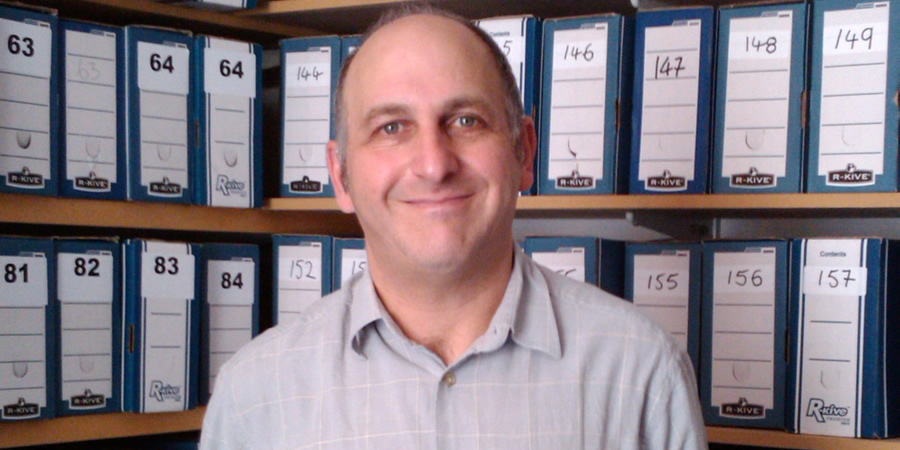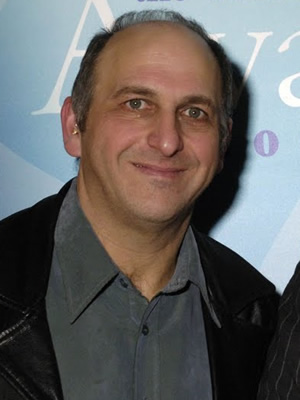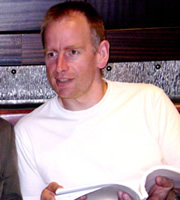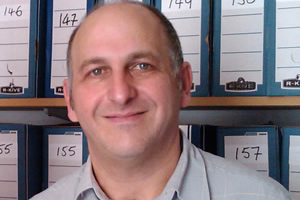New Sitcom, New Audience

Just starting out in comedy? Writer and performer Dave Cohen reckons the rise of the audience sitcom showcase is good news for you.

For many years the only way to become a professional comedy writer was to win a place at Cambridge University. Join Footlights, watch your mates become performers and BBC producers, then just wait for the phone to ring.
I'm exaggerating of course - but now there are many more openings. Stand-up allows you to find out, almost instantly, if you can communicate 'funny'. If you hate performing, you can always write for a stand-up, or send sketches and one-liners to topical radio shows, set up your own live sketch show, make movies on YouTube, animate...
The one form it's been hardest for a new writer to learn on the job is sitcom. Every great show requires a brilliant script, brilliant characters, believable plots and loads of funny laugh-out-loud jokes. But even that's only half the story. Next you need a chemistry between your actors: then, something that when it airs catches perfectly the mood of the moment. If it's for an audience you have to hope the performance on the night translates into the edited TV programme (if there was a proven formula to make that happen then 80% of audience sitcoms would be hits). Finally, you have to hope your first episode doesn't go out the same time as England-Italy live in the World Cup Final.
But over the last year or so, a new form has found its feet, reclaiming the sitcom - which began on telly as live one-act audience shows - and allowing new writers the chance to find out if they can hack it.

Kev Sutherland (pictured) began The Sitcom Trials more than a decade ago in a room above a pub in Bristol. Now he runs a successful annual competition, featuring the first ten minutes of several brand new sitcoms, from which audiences choose a winner that gets to air its ending. More recently Simon Wright and Declan Hill began The Sitcom Mission, a variation on the above, which this year alone has attracted 500 entries. Both these contests have attracted new writers and performers, live audiences, and very interested TV commissioners. And since its inception a year ago, the less competitive Sitcom Saturday, produced by Alice Josephs of RealDeal Theatre, has run three successful readings, with more planned.
Declan is aware that these shows are filling a gap in the market. "Some people want to see a night of comedy which isn't just stand-up or sketches. And some want to see things that might get picked up by radio or TV companies." And of course, everyone likes a competition - although as Alice points out, their rehearsed reading is a free community event "which differentiates us from the others and gives SitSat a special atmosphere."
Declan: We very quickly reject around 85% of scripts which are unfunny, boring, two blokes sitting in a room making observational humour about their inability to get laid... The vast majority are written in the voice of the writer. The characters don't have identities of their own and aren't individuals with separate and conflicting needs and desires. Therefore, they can't create plots.
Alice: The characters just aren't there. While we recognize some (but not all) sitcoms are more akin to sketch writing, character is always important and not being funny usually flows from characters who just don't engage.
Declan: And about 25% send the first episode, even though we state specifically not to. If it's not funny on page one, and it's about the first day at a new job, why should I turn the page? I've got 500 of these to get through.
Alice: Scripts which aren't sitcoms with no potential for future episodes.
Kevin: I no longer read all the scripts, so at least 75% have been rejected before I even see them. I have no idea how many broke the rules from the start, I dread to think.
Alice: Another bugbear, cut and paste sitcoms where people have put together elements which they think are sitcom, without regard to character or plot.
So what makes a script stand out? All three are agreed that well-defined characters are the key to success - "and of course we'd like a plot!" Alice adds, only half-joking.
Declan: Our maxim is 'funny, interesting and marketable'.
Alice: Sometimes the premise and initial character descriptions are excellent but the execution is poor, even if an occasional good gag is thrown in... More subtly, some scripts which simply aren't sitcoms are not necessarily badly written. We do consider some which veer towards comedy-drama if we feel the characters have potential for a series, but may reject if it's too much drama and not enough comedy. Being funny and having gags is important.

All three competitions have easy-to-follow websites (listed below). "Make it easy for me to put it in the Yes pile," says Declan (pictured), "don't make it easy for me to move onto the next one." Having said that, Declan accepts that rules can be broken. "We have a 3-strikes and you're out rule, so if you break three of them, you're in trouble. However, if what you've written is laugh-out-loud funny, we'll keep reading. " And Alice adds: "At least one writing team we had produced totally surreal sitcoms, but there was still a surreal logic the audience followed, and found satisfying."
In the past when I've taught sitcom writing I've concentrated principally on the TV and radio forms. But this is a great development for new writers and I shall definitely spend some time looking at producing scripts for live shows.
What Declan says about breaking rules is good. I would add, though, that rules should be looked on benignly, they exist because they've worked so often for so many. I'd say when you're starting out it's more important to master the rules before trying to break them. As Alice says, "We prefer scripts where the writer shows they know what a sitcom is and who their characters are."

I have one last piece of advice. Before you even begin: stop, and think. The urge to start writing is so strong, but the basic mistakes (and we never stop making them) usually happen because we don't spend enough time really thinking through the premise. Is yours strong? Can you hear every character talking with an individual voice? Can you visualise six strong plots with twists and turns, and which test your lead character to breaking point? Do jokes that spring from these characters pop into your head? I know, it's a thin line between preparation and procrastination, but as long as you are honest with yourself you should make progress.
Better to waste several hours or days thinking through an idea before admitting to yourself that it won't work, than to waste three months of your life writing the damn thing, only to have it rejected straight away. Happy writing. And good luck!
For more information about the shows mentioned here, visit their websites:
The Sitcom Mission
The Sitcom Trials
Sitcom Saturday
This article is provided for free as part of BCG Pro.
Subscribe now for exclusive features, insight, learning materials, opportunities and other tools for the British comedy industry.


